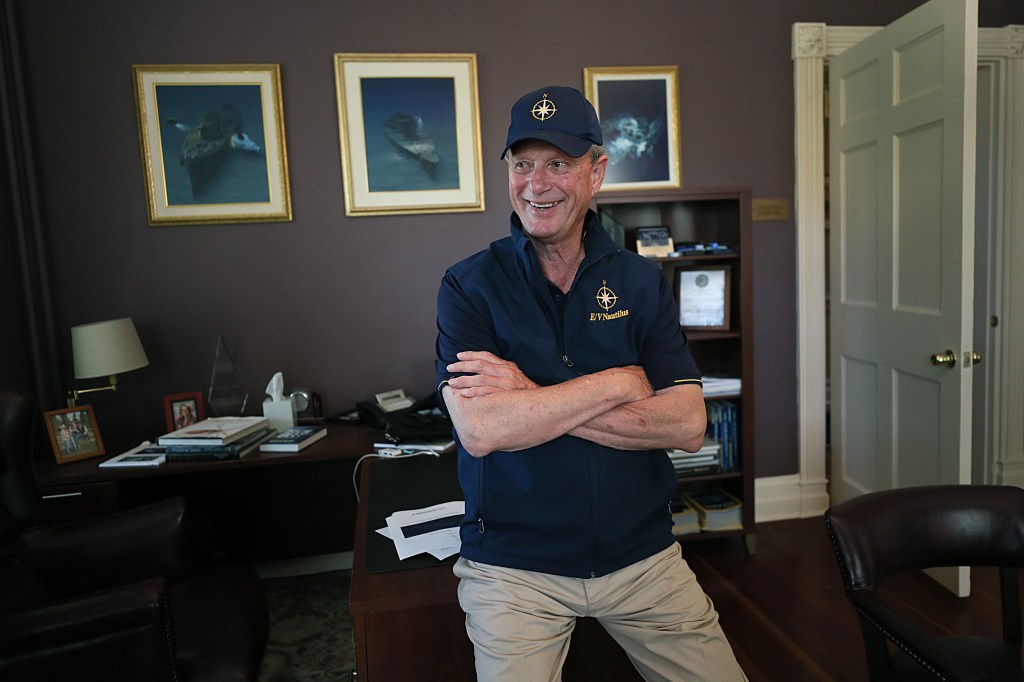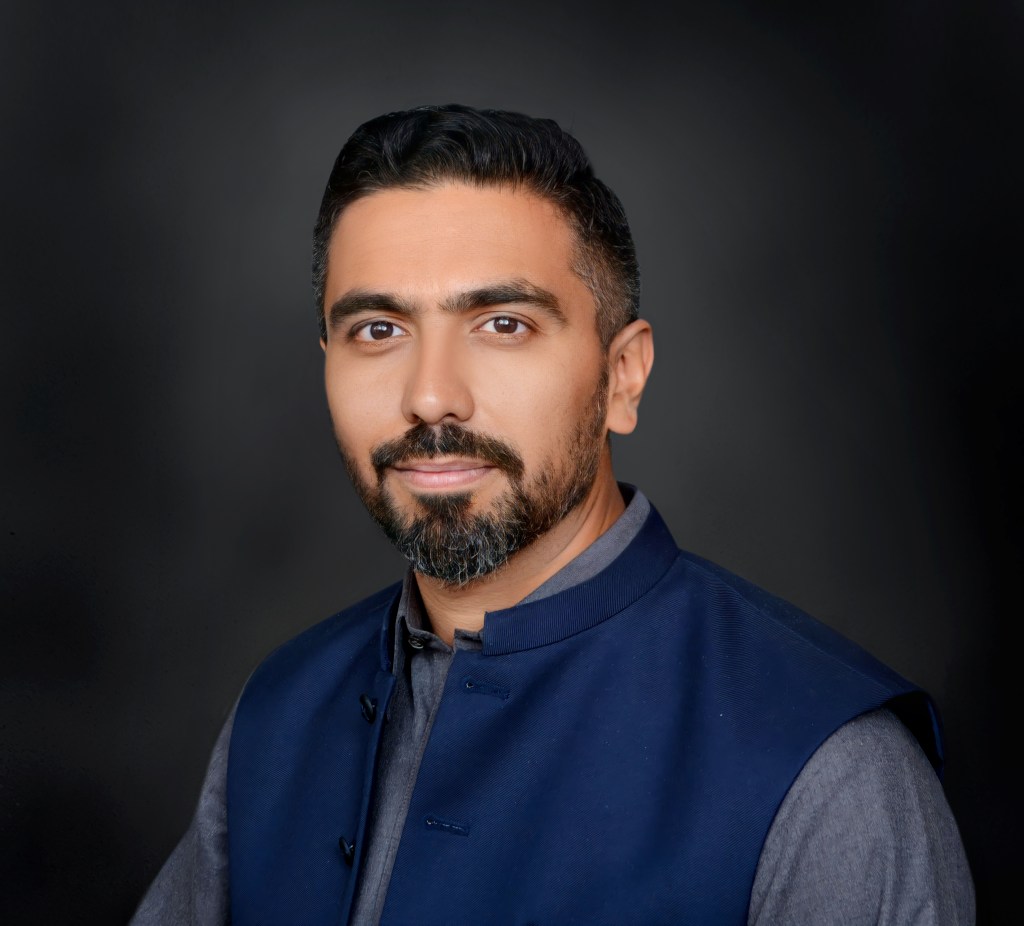Venture capital firm AirTree recently doubled down on its investments into the company with a $15 million co-investment with one of its LPs.
In 2014, Nasir Ahsan was part of a deep ocean expedition to map the seabed four kilometres below the earth’s surface using a robot. The marine robotics expert was on the vessel owned by oceanographer Robert Ballard, who famously discovered the Titanic shipwreck in 1985, and it took place off the coast of Trinidad in the Caribbean. The experience had an immediate and profound impact on Ahsan’s career.
“We were navigating through completely barren caverns, and then all of a sudden there appeared a football field-sized area of animals and organisms feeding off the methane coming out of mud volcanoes,” says Ahsan.

“It was surreal to think that nobody had ever been there before. The animals had never seen an ROUV [remotely operated underwater vehicle] and crabs and octopuses were coming up and trying to touch the screen.”
When Ahsan returned to Australia, he convinced his wife and two close friends that they should start a company that would create a safer and more sustainable way of undertaking engineering assessments. He named it Abyss Solutions, which was a reference to the deep end of the ocean he had explored.
“I realised that the depths of the ocean are the new frontier when it comes to research and innovation, and that was what I needed to be doing. But I needed to do it in a way I could make money,” he says.
The idea he had was to use state-of-the-art machine learning and robotics to provide data-driven engineering assessments for critical infrastructure projects. Sending a robot down would be far safer than sending a human, and the carbon footprint would be drastically reduced.
Ahsan had met his co-founders at Friday prayers at a mosque at the University of Sydney, where they were all in academia. He and his wife, Hina Ahsan (pictured above), had married long before, in 2008, and she is currently the financial controller of Abyss. She and Ahsan have two young children and divide their time between the United States and Pakistan, with quarterly trips to Australia.
The right chemistry
With four co-founders, is there a lot of potential for differences of opinion that could lead to conflict? None whatsoever, says Ahsan, who is CEO.
“We’ve never had a formal document to state our separate responsibilities or anything. We are very tight. The relationship is more about making sure we all are happy, rather than one individual being happy. And my wife and I never talk about work when we’re at home.”
Each co-founder brings a different skillset to the team: Abraham Kazzaz (pictured above) was doing a PhD in geotechnical engineering and Masood Naqshbandi (pictured above) was doing a PhD in optics and photonics. His wife was doing a master’s in economics and statistics.

“When it comes to co-founders, it’s the chemistry that matters more than individual skills,” he says.
The four of them each put in a thousand dollars as starter funds for their business – but they went broke before the company was even officially launched.
“We started the company from a small studio apartment in Newtown [in Sydney] and we had to make money one way or another. I started delivering Christmas trees and was driving a truck across the city. I delivered pizzas too. I’d come home and put the cash on the counter and count out the week’s rent. And that’s sort of how we lived.”
Things quickly picked up though, and the four were able to devote themselves full-time to their new company.
Over the next few years, Abyss was funded by researchers in different industries and it was clear that there was strong growth potential.
“We needed a ‘golden goose’ that would help us scale,” says Ahsan. “And that turned out to be oil and gas, which we got into in 2018. The paychecks were way bigger, as were the margins and the urgency of the problem that needed to be solved.”
Offshore platforms are incredibly complex, and it takes five years to carry out a safety check – during which time, accidents can occur. The technology deployed by Abyss condenses that timeframe into just three weeks. Its AI technology that is more accurate and thorough, and it negates the need to send out humans in petrol guzzling helicopters to undertake dangerous assessments.
“Offshore platforms are like ticking time bombs. If you don’t take care of them, they blow up and people die. You don’t hear about it much in the media, but it is the reason why we are in business. Many people in my team have joined the company because they believe our technology is going to help save lives.”
His clients are delighted: Abyss has de-risked billions of dollars for them and the reduction in chopper flights helps them achieve their decarbonisation targets.
Abyss Solutions now has 140 staff, and it has seen 105% compound annual growth year-on-year since 2018.
Venture capital firm AirTree recently doubled down on its investments into the company with a $15 million co-investment with Australian Retirement Trust.
“We are at the point where most companies die – it’s what is known as the Valley of Death in the early stage. Many companies are not ready for the tsunami of interest and they fail to deliver and they lose their reputation and their clients,” says Ahsan. “So we thought that now would be a great time to take some extra capital to help us cope with the growth.”
Some of the world’s biggest companies rely on Abyss to carry out assessments in industries that include energy, agriculture and water infrastructure. It is also working with the Australian government and a consortium to launch a mechanical integrity robotic arm system into space that will negate the need for satellites to be sent to fix other satellites.
Ahsan knows there is room for improvement when it comes to celebrating the wins along the way.
“Every time something finishes, I’ve got this bad habit of being busy thinking about the next thing. I’ve been told that I don’t celebrate much. When something good happens, I’ll think to myself, ‘It should have happened quicker’.”
Further reading
‘Defies the limits’: Rolex unveils deepest ever dive watch
Aussie fraud and security startup wins US$10 million seed funding from Blackbird and AirTree
